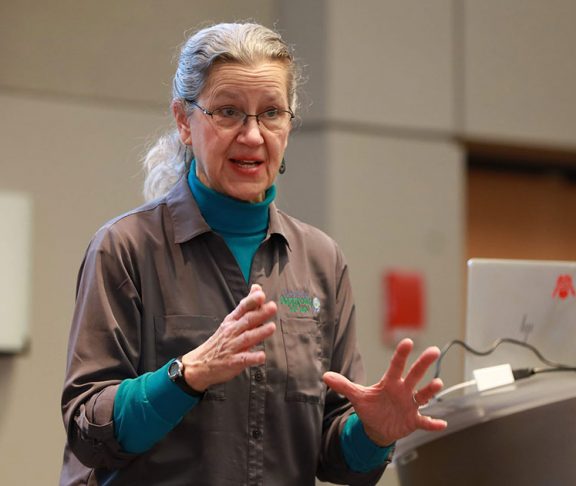Caregivers have been on the front lines of the pandemic this year, particularly in aged care facilities where COVID has posed higher risks. Teepa Snow, founder of A Positive Approach to Care says the pandemic has forced the healthcare system to rethink aged care, especially for patients living with dementia.
“People living with dementia are at a heightened risk for developing COVID symptoms,” Snow said. “It puts them in the high-risk category, not only because of their dementia but because they also have in general at least three other health conditions that contribute.”
However, the physical health issues are only half of the problem.
“When we socially isolate or we remove routine, that has a risk pattern to it that can increase the risk of anxiety and depression dramatically, not only for the person living with dementia but also for the care partner,” Snow said.
Straining the system
Many care facilities are not designed to accommodate social isolation.
“If you’re going to isolate by individual, care buildings were never designed to have people stay in their bedroom all day long,” Snow said. “The whole point of a small bedroom was that you only slept there and came out for everything else.”
For families with someone living with dementia in their home, the social isolation has meant undue burden on family caregivers.
“Some families have been forced into segregation and separation, and other families in the home are being asked to do 24/7 care without a lot of help,” Snow said. “It’s both extremes, both of which are bad outcomes for everybody involved.”
In response to the imposed isolation, healthcare has moved toward telemedicine, but the technology isn’t perfect for caring for people living with dementia.
“Telemedicine has great value because it eliminates geographic boundaries,” Snow said. “But a human being has to be able to gaze into a screen and understand that they are engaging with another human.”
Determining best practices
When communicating virtually with people living with dementia, Snow is working on practices to deliver the best care possible. Things like hanging a blank curtain behind yourself to eliminate visual distraction, or having someone minimize self-view windows so the patient can only see the person they’re speaking with, make communication much clearer.
“We’re learning the art of using technology to connect,” Snow said.
Human connection is a vital part of caring for people with dementia, something Snow insists has to be addressed.
“We aren’t developing care plans that are person-centered, and yet without person-centered care planning, life isn’t worth living for people living with dementia,” she said. “They deteriorate and their families are distressed.”
Snow believes the future of care lies with the younger generation, which is why it’s so important to get people involved early and interested in caregiving careers.
“Young people have an ability to see beyond and they have the ability to make a difference,” she said. “People are seeking value and purpose in their life, not just earning a certain amount. Making a living is great but that’s not necessarily how people have that feeling of community and contribution.”

